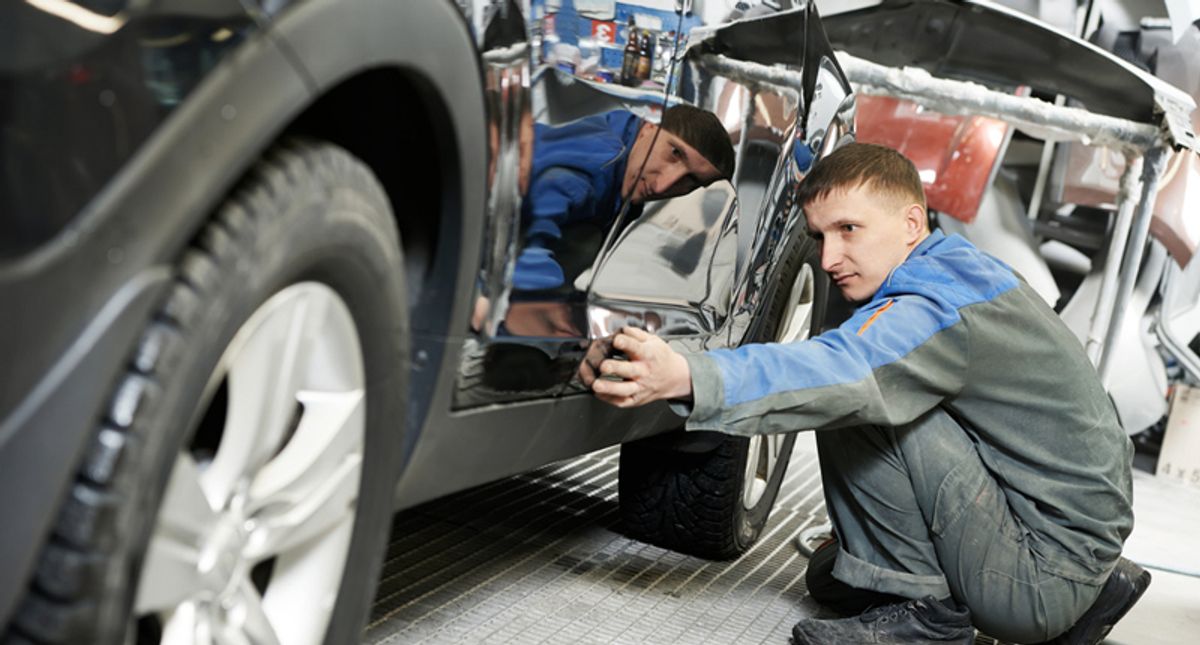
President Donald Trump's tariffs may seem at first like a godsend for the U.S. auto industry, which has struggled to compete with foreign automakers for decades, but Brian Deese warned in The New York Times that Trump has actually put them into a "Luddite trap."
And the "damage to our economy and national security could be profound," he said.
This alert by Deese, an economist and former adviser to the Biden administration who helped organize the auto bailout in the aftermath of the 2008 financial crisis, is hardly unique — the CEO of Ford has himself made similar warnings that the tariffs will do more harm than good.
"For over a century, the auto industry has been a cornerstone of America’s industrial power: It revolutionized manufacturing with the assembly line, forged stronger forms of steel, aluminum and carbon fiber and drove technological innovation with the invention of sophisticated robotics and sensors," wrote Deese. "And because the auto industry’s influence extends far beyond the factory, supporting vast supply chains, restaurants and retail stores, it’s also been a key driver of economic opportunity in the industrial Midwest and beyond."
Yet in recent years, the auto industry has lost its competitive edge to companies abroad, Deese said.
" China has made huge strides in producing next-generation vehicles, backed by billions in state subsidies intended to undercut competitors and dominate global manufacturing. While Tesla specifically has led in battery and automation innovation, the scale and quality of China’s manufacturing are putting America’s entire auto industry at risk."
ALSO READ: 'This is our shot': Dems believe MTG's new job gives 'golden opportunity' to destroy GOP
Some narrow kinds of protectionist policies aren't necessarily a bad idea, he argued — in the 1980s, for example, as Japanese cars left U.S. automakers in the dust on quality and fuel economy, very targeted import restrictions "gave American automakers the runway to catch up, increase their profits and innovate (including by producing the first minivans)."
But this is the reverse of what Trump is doing, said Deese, because he's not just going after finished cars, but auto parts.
"Because nearly 60 percent of parts in typical U.S.-made vehicles are imported, these across-the-board tariffs will drive up the price of American cars, diminish their global competitiveness and ultimately reduce output. The cost to our auto industry, estimated at $108 billion, will fall hardest on smaller, more vulnerable companies. It has already led to layoffs."
Worse, thanks to his ideological opposition to electric cars, Trump has killed public investments in battery storage technology that will be essential for the U.S. to compete.
"Unfortunately, Mr. Trump seems set on stifling innovation and alienating our allies with indiscriminate tariffs," wrote Deese — and business leaders must unite to push back. "For auto workers, and the communities that depend on the industry," he concluded, survival "means recognizing that while unfair trade competition must be addressed, Mr. Trump’s current tariff strategy spells only failure."




